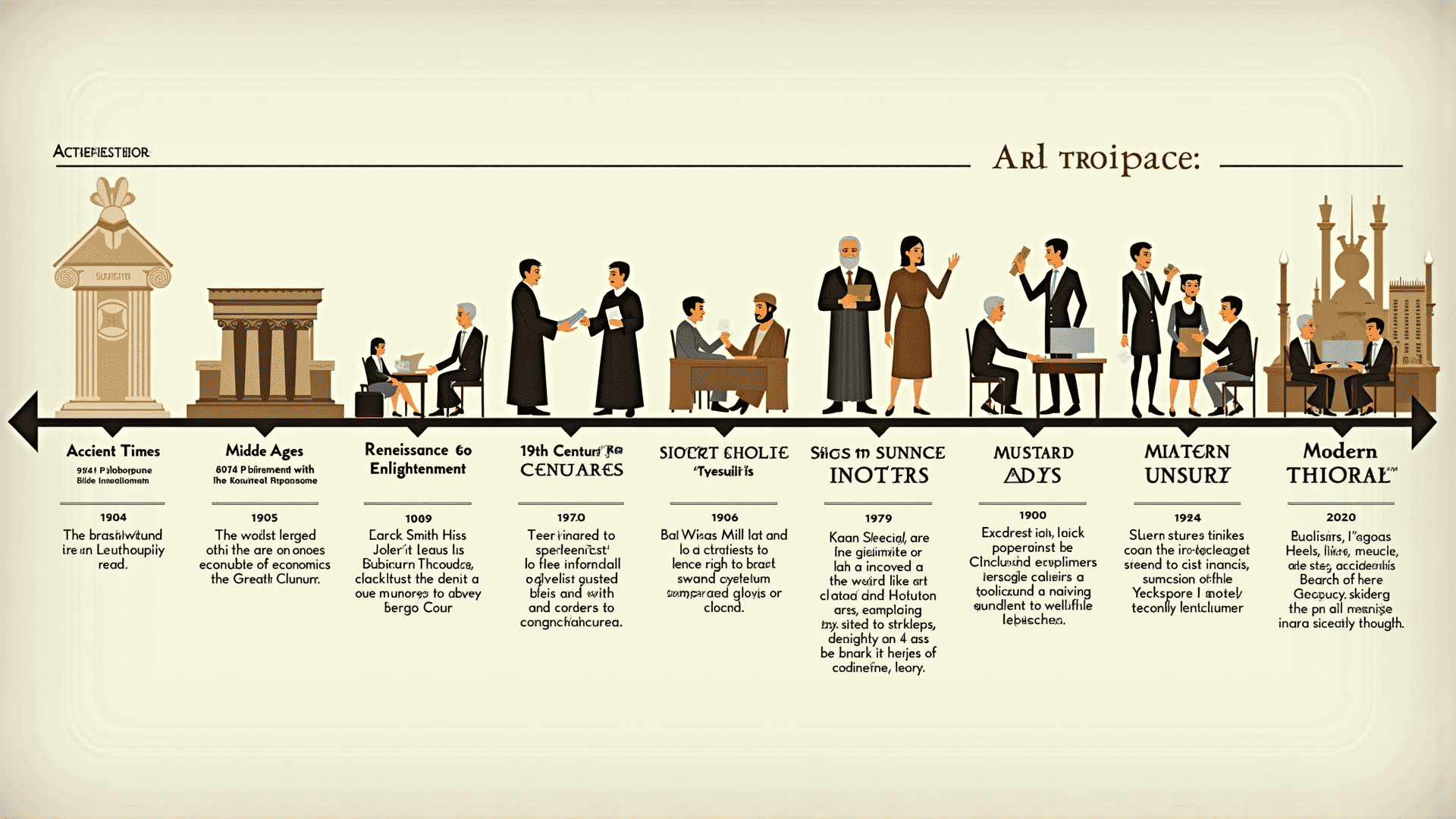The progress of economic theory throughout history is a fascinating journey that reflects the dynamic changes in human society and thought. This evolution can be traced back to the early civilizations, where the foundation was laid for subsequent developments leading to modern theories.
In ancient times, economic thought was mostly intertwined with philosophy and ethics. In Greece, Xenophon and Plato contemplated economic issues, emphasizing the role of government and ethics in society. Aristotle introduced the notion of value, contemplating its role in exchange and use, setting ground for later considerations.
The Middle Ages saw the Scholastics, such as Thomas Aquinas, delve into the moral aspects of economic activity, particularly through the lens of justice in compensation. The focus on ethics in economic activities continued to dominate until the Renaissance, where the expansion of trade routes required more structured thinking.
The 17th and 18th centuries marked the onset of classical economics. With the Industrial Revolution underway, economic thought gained a more scientific and analytical approach. Pioneers like Adam Smith, often regarded as the father of modern economics, introduced concepts such as the division of labor and the invisible hand, vital in understanding productivity and self-regulating markets. David Ricardo and Thomas Malthus further developed ideas around income distribution and population dynamics, respectively, embedding key principles in classical economics.
The 19th century saw the emergence of new economic ideologies. Karl Marx offered a revolutionary critique of capitalism, presenting capitalism as a stage in economic development eventually leading to socialism. Marx's ideas fueled debates on the roles of labor and capital, shaping subsequent socio-economic structures.
At the dawn of the 20th century, neoclassical economists like Alfred Marshall brought a more mathematical approach to economics, emphasizing supply and demand, and the equilibrium concept. This era witnessed the synthesis of earlier thoughts into more cohesive models addressing market behaviors.
The Great Depression was a significant turning point, with John Maynard Keynes introducing macroeconomics, focusing on aggregate demand as a means to address unemployment and economic stagnation. Keynesian economics dominated the mid-20th-century policy landscape, advocating for state intervention during economic downturns.
The latter part of the century saw critiques from monetarists like Milton Friedman, who argued for the primacy of monetary policy over fiscal measures in managing economic stability. Concurrently, schools of thought like the Chicago School and Austrian School enriched debates with diverse perspectives on market processes and the role of government.
In recent times, economic theory has continued to evolve, integrating insights from other disciplines. Behavioral economics, for example, examines how psychological factors impact decisions, while game theory addresses strategic interactions among rational decision-makers. There is a growing interest in ecological economics, reflecting concerns about environmental sustainability.
Each period in history has contributed vital elements shaping contemporary economic thought. Today’s economists build on a vast legacy, continuing to refine theories to tackle the complex global challenges of inequality, sustainability, and technological advancement. This ongoing journey ensures that economic theory remains as dynamic as the societies it aims to understand and serve.
